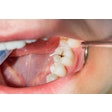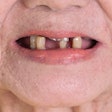Researchers at the University of Copenhagen have helped a large group of patients with diabetes improve their oral health by using health coaching. The research findings were published in the Clinical Oral Investigations (December 2013).
People with diabetes are at a higher risk of having oral health problems, such as periodontitis, caries, dry mouth, fungal infections, and poor wound healing.
The study, which included 186 patients with type 2 diabetes, is the first in the world to demonstrate the role of health coaching in improving dental health and empowering patients, according to the study authors. Through motivational health coaching, patients assume responsibility for their own bodies and boost their self-efficacy, taking a different approach to conventional health campaigns and one-way communication.
For the study, the patients with diabetes were divided into two groups. One group was given traditional health information -- for example a brochure on good dental hygiene. The other group was offered motivational health coaching in three to six sessions over a six-month period, focusing on personal guidance on such topics as diet, stress management, and dental care.
For patients who were given personal health coaching, biological markers for periodontitis were reduced by as much as 50% over a six-month period, according to authorized coach and study author Ayse Basak Cinar, from the department of odontology at the University of Copenhagen.
The researchers also measured the long-range blood sugar (HbA1c), an expression of the average glucose level in the blood over the past approximately three months. For the coaching group, this fell from 7.5% to 6.9%.
"The patients in the trial group saw a significant decline in long-range blood sugar levels, whereas figures for the control group were unchanged," she said. "Moreover, the patients in the coaching group expressed markedly increased self-efficacy in relation to handling illness and health issues."
Health coaching has a significantly higher impact on better management of diabetes and oral health when compared with formal health education. This calls for the use of health coaching by dentists, physicians, and diabetes educators to improve the quality of life of patients with type 2 diabetes, the study authors concluded.



















